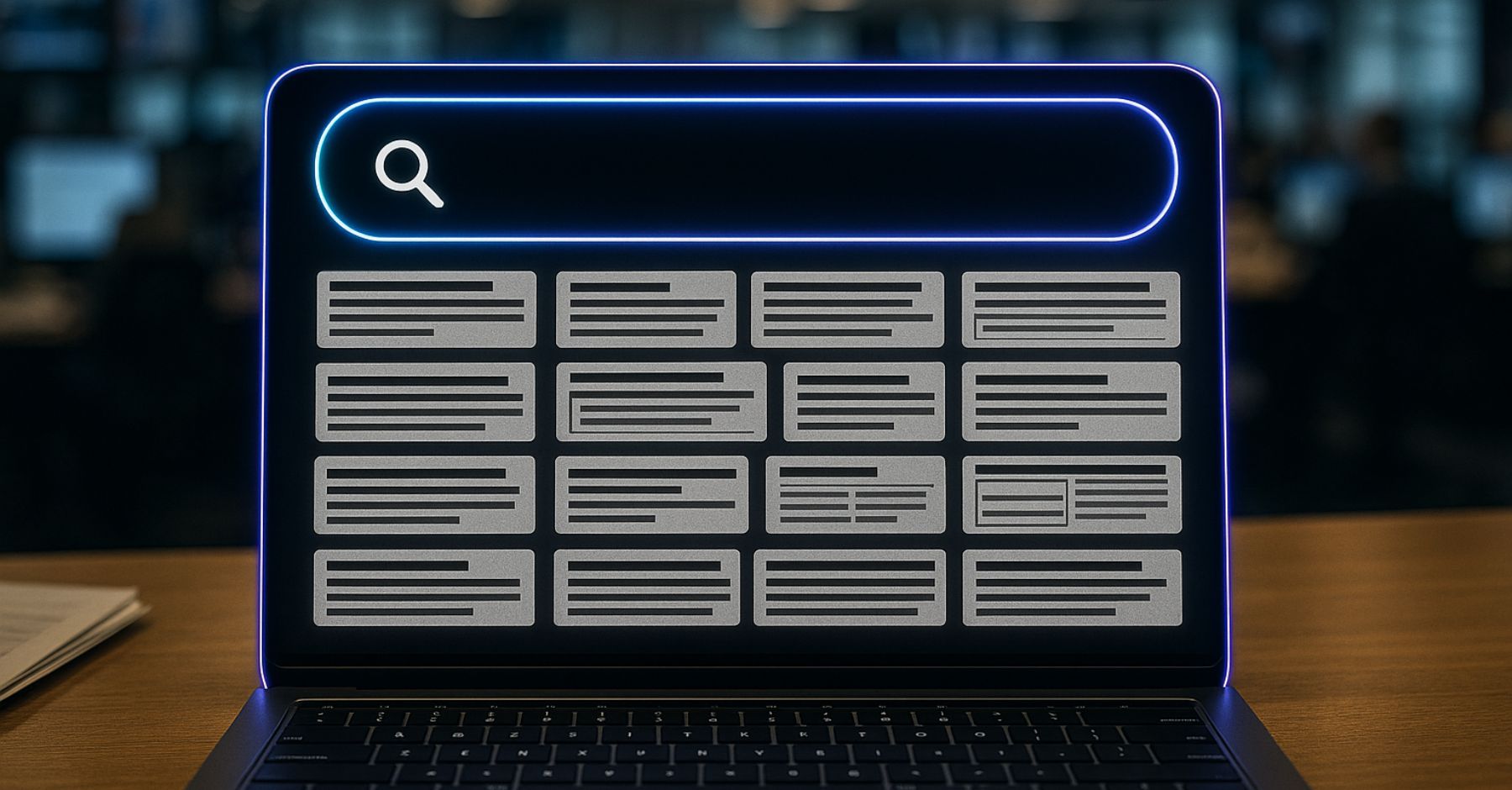Each week we’ll gather headlines and tips to keep you current with how generative AI affects PR and the world at large. If you have ideas on how to improve the newsletter, let us know!
What You Should Know
AI Search Is Progressing and Changing How Google Operates
If you’ve been holding off on exploring AI search, thinking it doesn’t affect your communications strategies, Google has some news for you. The website that became a synonym for search is leaning further toward AI quicker than many anticipated.
In court filings, Google went against its public statements and declared “the open web is already in rapid decline,” with fewer users clicking through to publisher sites and more answers appearing directly in AI-generated summaries. If that seems motivated by the threat of divestiture, Google’s announcements and updates make clear that search is now in its AI era. It moved last week to make its “AI Mode” easier to access, with one product lead suggesting on social media that it could “soon” become the new default (though a Google VP downplayed that comment).
Google isn’t the only tech giant thinking this way. ChatGPT, which revamped its search capabilities nearly a year ago, has caught hold. Use of the platform for search nearly tripled from February to August, according to Higher Visibility. Bloomberg reported last week that Apple wants in on the action and is working on its own AI web search tool that could be released in 2026.
Communicators and brands are starting to shift their strategies so they show up more in this new era of search. Just as search engine optimization (SEO) became essential to visibility in the early 2000s, generative engine optimization (GEO) is the future.
Instead of keywords and rankings, we’re dealing with prompts and mentions in AI answers. Whether you’re mentioned or cited depends on the strength of your brand, PR, content, and distribution. It requires a shift in strategy and tactics to adapt to the new ways customers are finding information and getting recommendations.
We’ll be diving deeper into GEO and practical steps to prepare in a webinar next Monday, Sept. 15, at 1 p.m. EST. While the session is tailored to RIAs, the strategies apply broadly across industries. Register here.
Elsewhere …
- PODCAST: Why Earned Media Is the Hidden Fuel Behind AI Search Answers
- OpenAI Could Launch Its Own AI Chip Next Year
- Judge Skewers $1.5B Anthropic Settlement with Authors in Pirated Books Case Over AI Training
- New AI Tool Predicts Therapies to Restore Health in Diseased Cells
- Claude Can Now Create and Edit Files
 Branch out
Branch out
What’s happening: Last week, OpenAI announced a new feature letting users “branch conversations in ChatGPT.” It’s essentially an option to take a new route at any point in the thread, whether to use a different model or just try another prompt.
Previously, you could edit a prompt or change a model mid chat, but you’d have to toggle between the various versions in the same thread to see the different outputs. Branching lets you start multiple chat threads from the same beginning for cleaner conversations.
How it works: Go to any output in a conversation and click on the ellipsis for “More actions,” then click on “Branch in new chat.” It will create a copy of the thread (same name and all) up until the output you chose, with a horizontal line that says “Branched from [insert thread name here].”
Why you’d do it: Say you’re working on a new report stemming from survey results across three sectors, and you’ve already prepped the conversation with the data. You could branch out to create specialized reports for each sector after creating an overarching executive summary.
Or if you generated content using GPT-5, but don’t like the writing style, you could branch out from the last prompt before it gave you the unwanted version, asking ChatGPT to use the 4o model instead.
It’s kind of like the Choose Your Own Adventure book series (our younger readers may need to ask Google AI Mode about this reference), where if you don’t like the direction you chose, you can go back and pick a different one.
Quote of the Week
“The media has focused on the challenges, and they are significant. But there is research that, if successful, could bend the curve on our carbon footprint.”
— Benjamin Lee, Professor at the University of Pennsylvania, on a multidisciplinary initiative to make AI more energy efficient
How Was This Newsletter?



